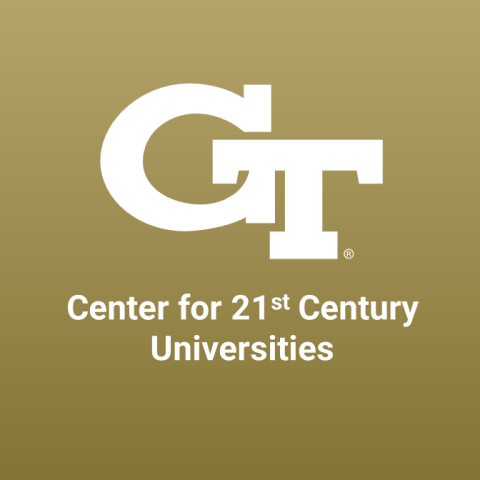
Three ways libraries are championing the open access movement
Scholars and researchers should take advantage of libraries’ support of and expertise around open access publishing. Asking a librarian for help could protect your work and save you money
Research management
Sponsored by
Elsevier helps researchers and healthcare professionals advance science and improve health outcomes for the benefit of society.
The open access movement has progressed very slowly over the past few decades. Recent changes to US federal guidelines for grant funding have rejuvenated the conversation around a sustainable open access publishing model. Although the perfect publishing model has yet to present itself, libraries have worked diligently to support this initiative over the years and have a vested interest in free access to information.
One of the core missions of libraries is to provide equitable access to information in perpetuity. The open access movement fits nicely with that mission, so it makes sense that libraries would support and advocate for open access.
- The double-edged sword of open access publishing
- How to sustain a journal and beat the academic publishing racket
- THE podcast: how the university library is an agent of change
Here are three ways libraries have worked with institutions to support open access that you can and should take advantage of today.
Institutional repositories collect and preserve institutional knowledge
An institutional repository (IR) aims to collect, preserve and disseminate a digital copy of knowledge produced by institution members. Many institutions have adopted open access policies that require using IRs hosted by the library to archive their intellectual output. The adoption of IRs can vary by institution, but there are a few key reasons why you should consider putting your work in your IR.
1. You retain the copyright of your work
In most cases, as an author, co-author or creator (for example), you have the right to submit a copy of your manuscript to your institutional repository. This ensures that your work is accessible without a paywall, thus giving your work a wider reach. Many publishers now include provisions for authors to retain copies of their work in their institutional repositories. Unless you have signed over your rights to the publisher, you own the copyright of your scholarship.
2. Institutional repositories help you meet federal funding requirements
Federal funding agencies are adopting Fair (findable, accessible, interoperable and repeatable) principles for federally funded research. IRs are a resource for meeting those funding requirements without additional cost or effort.
3. They provide unique identifiers
Unique identifiers such as Orcid and digital object identifiers (DOI) make attribution, discovery and sharing of your intellectual output much more straightforward and accurate, thereby maximising the impact of your scholarship. Unique identifiers are becoming instrumental in information discovery and access.
4. It’s an archive
Libraries are trusted places to preserve information for the long term, and you can rest assured that your work can be found years and years into the future.
Libraries negotiate transformative agreements
As open access becomes strongly desired and, in many cases, a requirement for scholars to share their work, libraries are advocating for the transformation of the publishing model by negotiating transformative agreements. These agreements shift the financial burden of publishing open access scholarship from the scholars to the institution. Traditionally libraries have had subscriptions to journals on a “pay to read” basis. The scholar must pay an article processing or publishing charge (APC) for the same journal to publish their work open access, or “pay to publish”. Often, the cost is as high as $3,000 (£2,370) to $5,000 per article. But publishers offer a different model where APCs are included in the subscription price. Now, libraries pay to “read and publish” or “publish and read”, where the costs are bundled. The money the institution saves in APCs often offsets the additional subscription cost. In some cases, the price is about the same. Your library is probably negotiating these deals with publishers on your behalf. Before paying an enormous APC, check with your library.
Consultation services
Libraries offer consultation services to support open access initiatives and practices within academic institutions. These services typically include guidance on navigating copyright, assisting researchers in understanding open-access publishing options and policies, and providing resources and tools for locating reputable open-access journals and repositories.
Additionally, they provide training and workshops on open-access publishing, copyright compliance and research data management, empowering researchers to adopt open access practices effectively. They also have relationships with peers across institutions, locally and globally, through organisations and memberships that they leverage to acquire knowledge and access tools to facilitate open-access scholarship. Libraries have evolved with the open access movement to keep up with the demand, and librarians have developed the skills to assist researchers and scholars. To take advantage of the library’s specialist expertise, contact your librarian.
In many respects, libraries are carrying the torch for open access and are crucial in advancing the movement. They are working tirelessly to foster a culture of openness, transparency and collaboration within the academic community. By leveraging their expertise and resources, libraries empower researchers and scholars to navigate the evolving scholarly communication landscape effectively. As the open access movement continues to gain momentum, libraries will continue to advocate for equitable access to information and are a valuable resource for you.
Karen Glover is associate dean for content, access and user services at the Georgia Tech Library at Georgia Institute of Technology.
If you would like advice and insight from academics and university staff delivered direct to your inbox each week, sign up for the Campus newsletter.
Research management
Sponsored by




